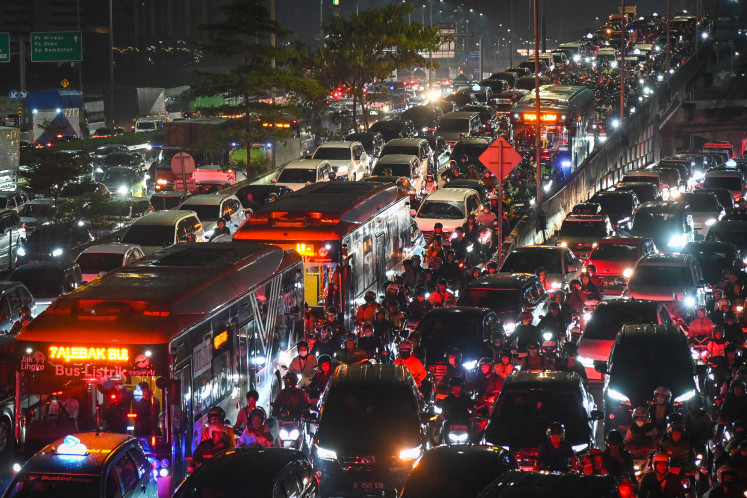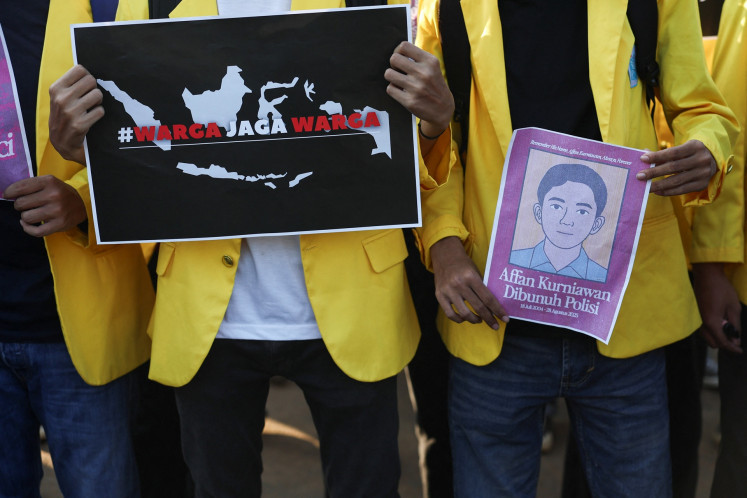Popular Reads
Top Results
Can't find what you're looking for?
View all search resultsPopular Reads
Top Results
Can't find what you're looking for?
View all search resultsIndonesian youths among happiest in the world: Survey
Change text size
Gift Premium Articles
to Anyone
Indonesian youths are among the happiest in the world, according to a survey as reported by tempo.co on Monday.
The study, conducted by the UK-based Varkey Foundation education charity, was based on in-depth opinion polling by London-based research and strategy consultancy Populus on the well-being, priorities, ambitions and beliefs of more than 20,000 youths aged 15-21 years old in 20 countries. It stated that Indonesian youths had topped the list with a score of 90 percent, followed by Nigeria (78 percent) and India (72 percent).
The survey found that Indonesian youths ranked the highest on emotional well-being with 40 percent of them having a "good overall emotional well-being” by “not thinking about their problems too much, and not feeling anxious, bullied, unloved or lonely.” Following Indonesia are China and Germany, both with 36 percent, Nigeria with 34 percent and Israel with 28 percent.
(Read also: First-born children have higher IQs, study suggests)
Up to 22 percent of Indonesian youths said they “feel they get enough sleep, exercise regularly and devote enough time to rest and reflection," which ranked them in the third position with Nigeria on top.
“Young people are passionate believers in the right to live the life that they choose, whatever their background, free of prejudice of all kinds,” said the foundation's chief executive Vikas Pota in a press release. “However, they are a generation that is deeply pessimistic about the future of the world. They are not strongly influenced by politicians and think that their governments are doing far too little to solve the refugee crisis – one of the greatest challenges of our age.”
The pessimistic attitude is said to come from worries regarding the future, such as extremism and terrorism, as well as conflicts and war. (wir/kes)







